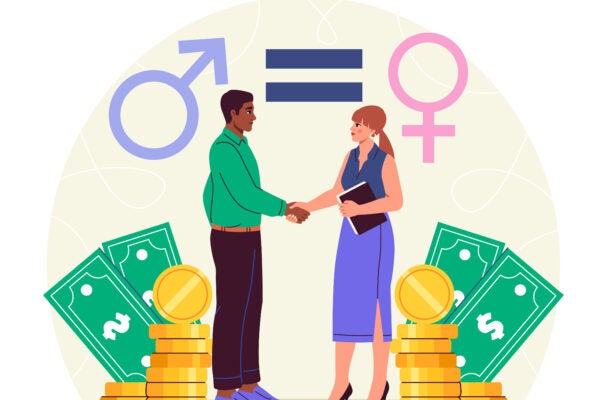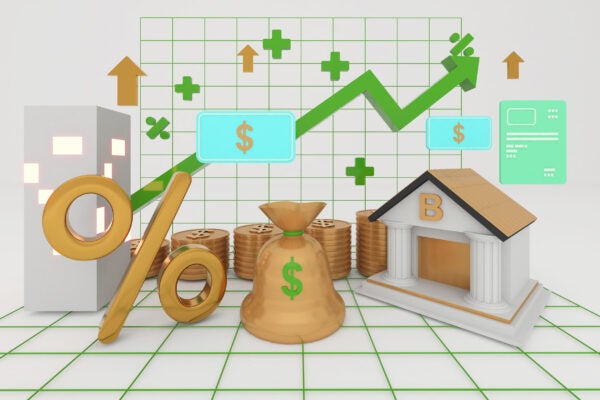Worth the Wait?
A Desire for Closure Influences People’s Choices: A Q&A with Annabelle Roberts, Assistant Professor of Marketing
by Suzi Morales
One of the few points on which most Americans agree: We spend too much time waiting. Research has found we spend 37 billion hours a year waiting in line, while the average commuter sits in traffic for 42 hours annually.
What’s not so clear is how we manage those waits. In two recent articles, McCombs assistant professor Annabelle Roberts explored both feelings and actions associated with impatience. She reached some surprising conclusions.
Marketers can use her findings to help consumers reduce the frustrations of waiting, Roberts says. Consumers, too, can use them to make more informed choices about when to wait.

Roberts became interested in research processes as an undergraduate psychology major working on a study measuring responses to stress. After graduation, she worked in marketing for a literacy nonprofit. There, she became intrigued by the underlying reasons people respond to certain marketing campaigns. Her interest in human behavior led her to pursue a Ph.D. in behavioral science from the University of Chicago Booth School of Business. This interview has been edited for length and clarity.
Q What motivated you to study impatience?
People are waiting all the time, and it can be a really miserable experience. We want to understand why it is that people feel impatient so that we can help to improve that experience and help people feel better.
Q What gaps in the current research did you want to explore?
Impatience is often thought of as myopia: People are impatient because they want to get the reward now. So, if you have a choice between receiving $10 today or $12 in a month, you may choose the $10 today because you really want that money now.
But we find that in some situations, people might make this choice because they just want to finish the transaction. To test this prediction, we looked at impatience to pay costs, where it’s actually costlier to choose the sooner option than to wait for the later option. And we found that people are more willing to pay a larger amount of money sooner when it allows them to achieve closure sooner: They’ll pay $12 now instead of waiting to pay $10 later. People are willing to pay extra to finish the transaction now. The sense of closure is worth paying those extra $2.
Q One of your key concepts is goal closure. How do you define it, and why are people so intent on it?
The desire for goal closure is the desire to finish a goal for the sake of finishing itself, to take these goals off your mind. This arises for two reasons.
First, these unresolved goals are costly. It takes mental energy to have these unfinished tasks on your mind, to remember to finish them.
Second, it just feels good to finish a goal. You enjoy that feeling of being able to cross the goal off your list of things to do.
This desire can often be a positive thing. But we’re exploring the potential downside: It can lead people to make more impatient choices. You might take a worse option just to get the whole interaction over with.
Annabelle Roberts
Q Is it a bad choice to pay a few dollars more, just to be done with waiting?
We’re not saying it’s necessarily a mistake to do that. If it’s worth it to you to pay the extra money to get the closure, then it’s worth it to you.
In fact, there are absolutely times where it’s beneficial. If paying more means you get the reward sooner, or if working more means you get the reward sooner, then you should take that.
But there are other circumstances where waiting for the reward has some benefit. You can get more information, you can complete something more easily, or you can pay less, if you wait. That is the situation we are exploring.
Q How can marketers help to alleviate the pain of waiting?
In a separate series of studies, we find that people feel more impatient the closer they get to the end of the wait. The hardest time to wait is right before the wait is over. This suggests that if you’re telling people how long they’ll have to wait, it can be better to overestimate the length of the wait rather than underestimate it.
This allows the wait to end before people become the most impatient. If you overestimate the wait instead, you’re just extending that uncomfortable period.
Similarly if there’s going to be a delay, it might be better to tell people about the delay earlier in the wait, when they’re not as impatient — as opposed to later in the wait, when they’re already feeling agitated.
Q Was there anything that surprised you while doing the research?
We started studying people’s impatience to find out the election results in the 2020 U.S. presidential election. From a few days before, up until Election Day, we found people became steadily more impatient to find out the results.
But what was most interesting was the day after Election Day. At that point, the preliminary results suggested Biden was going to win, but the final results weren’t known. We found that both Biden supporters and Trump supporters felt even more impatient for results on the day after the elections.
We often think about impatience as being tied to uncertainty. But this was a situation where both Biden supporters and Trump supporters were more certain that Biden would win — but they still both felt more impatient.
These findings suggest impatience is driven not only by uncertainty but also the desire to get the wait over with. People felt so close to the end of the wait that they just wanted to resolve it. It’s a nice illustration of the desire for closure.
Q How has your research affected how you wait for things?
I’m impatient just like everyone else. I get frustrated sitting in line or on hold. I find it helpful to know that impatience increases at the end of the wait. When I feel myself getting agitated, I know what’s going on. Just having that information can help me take a breath and stay calm in those moments.
About this Post
Share:


